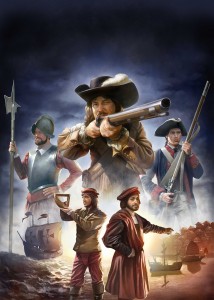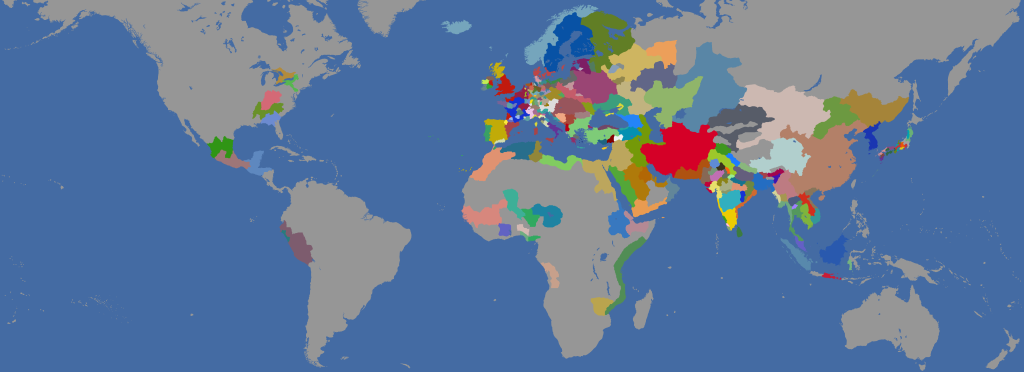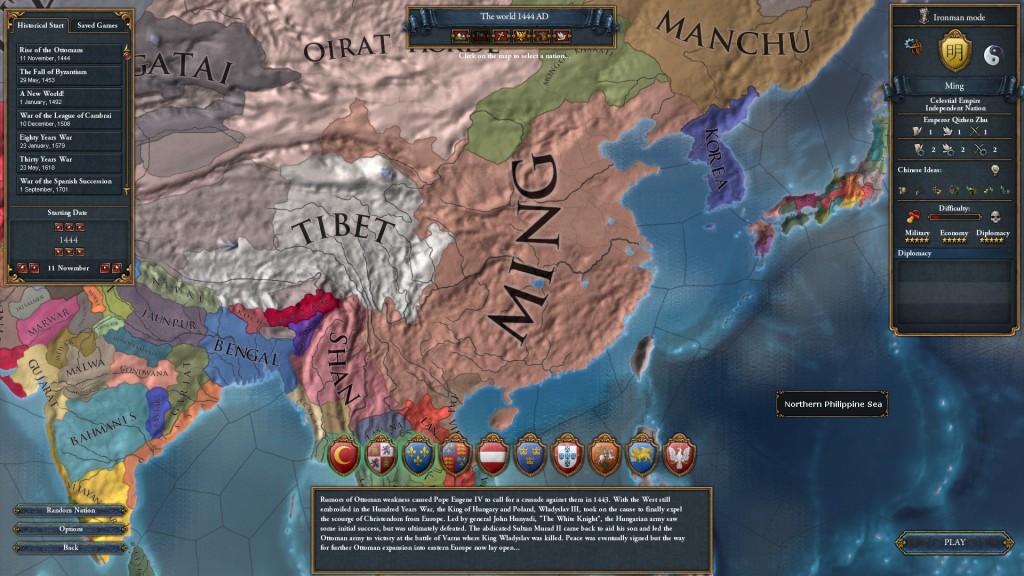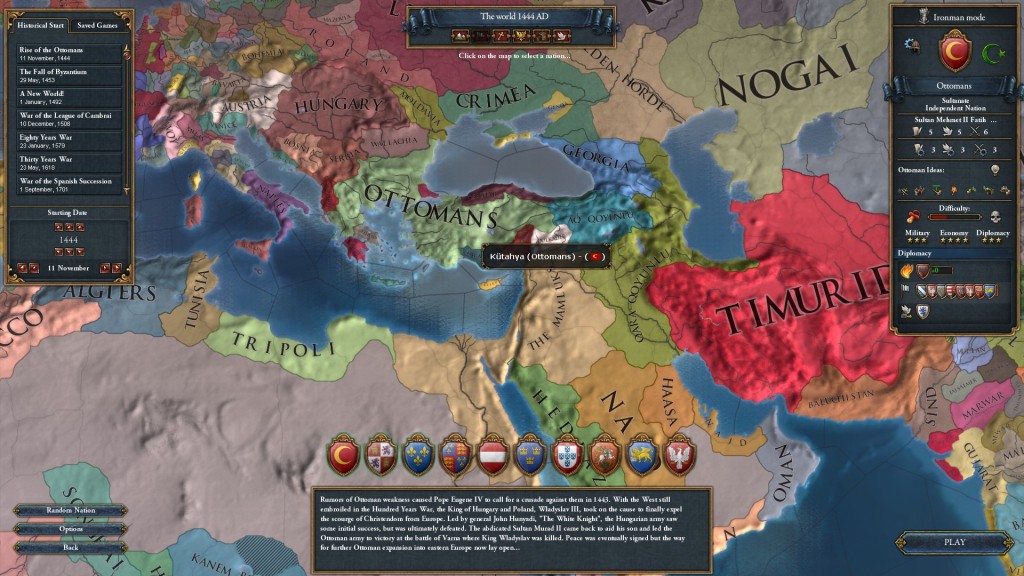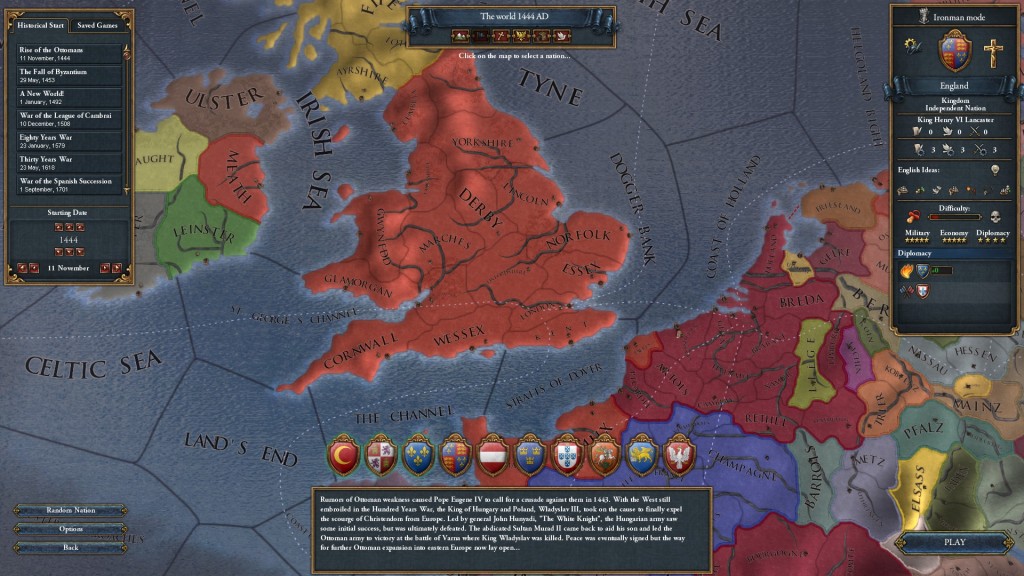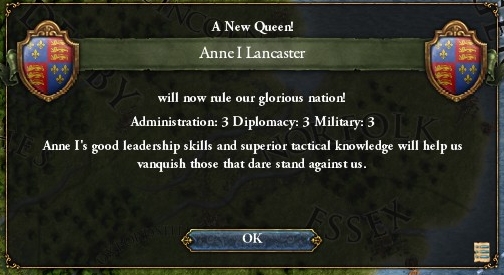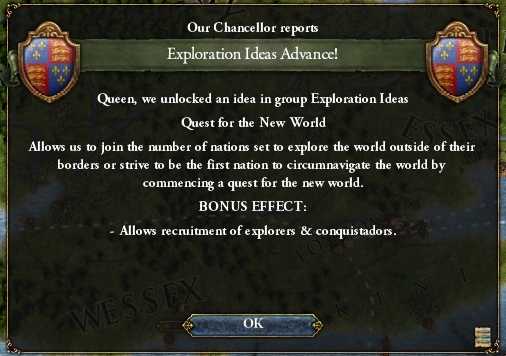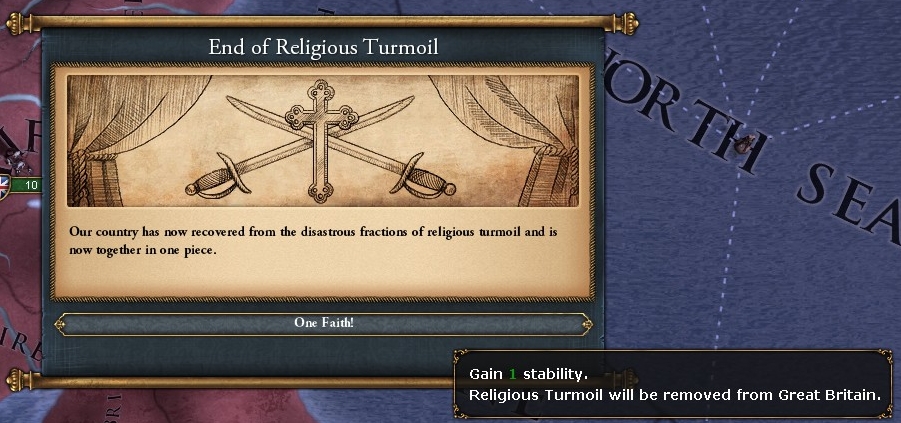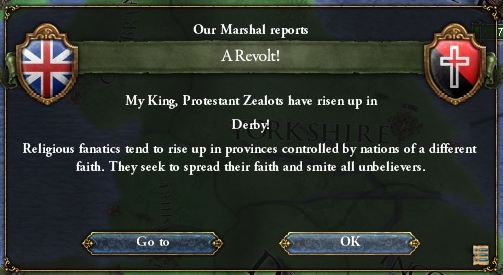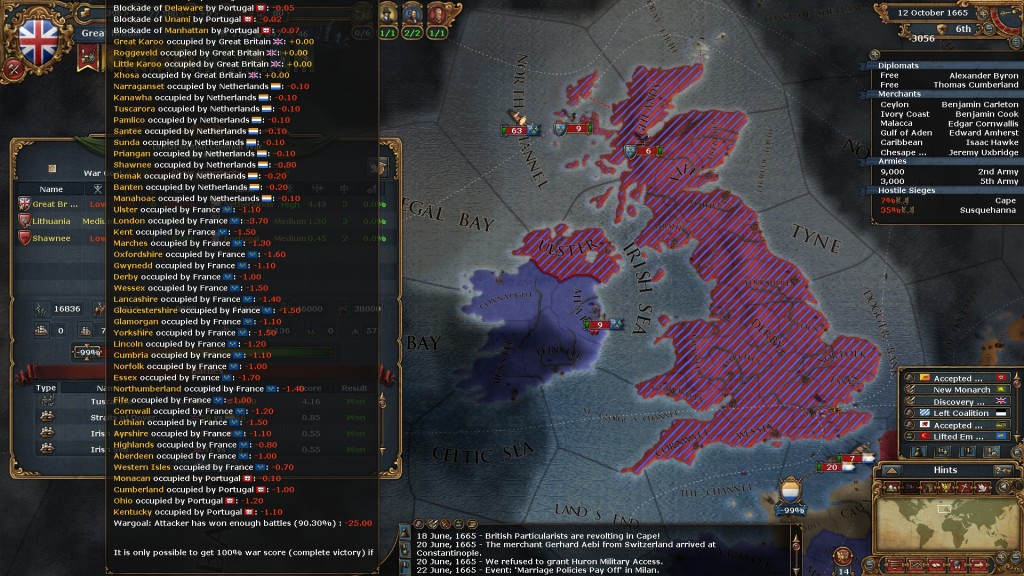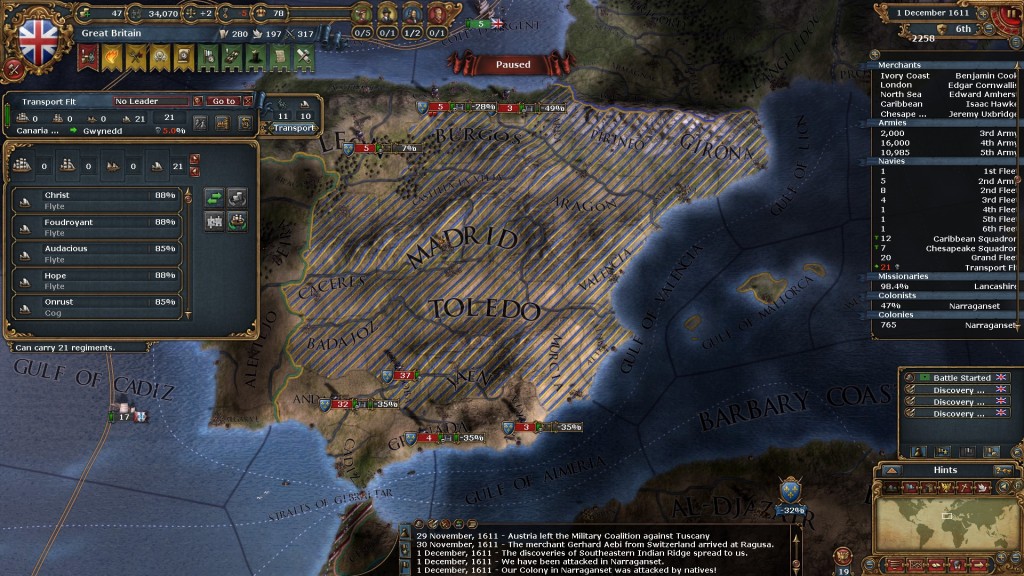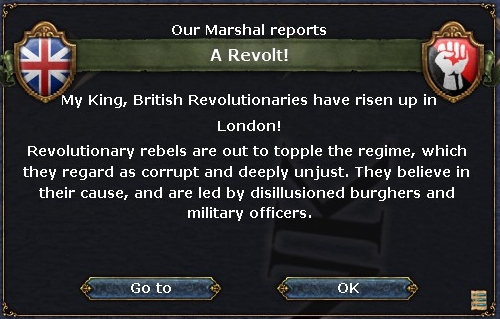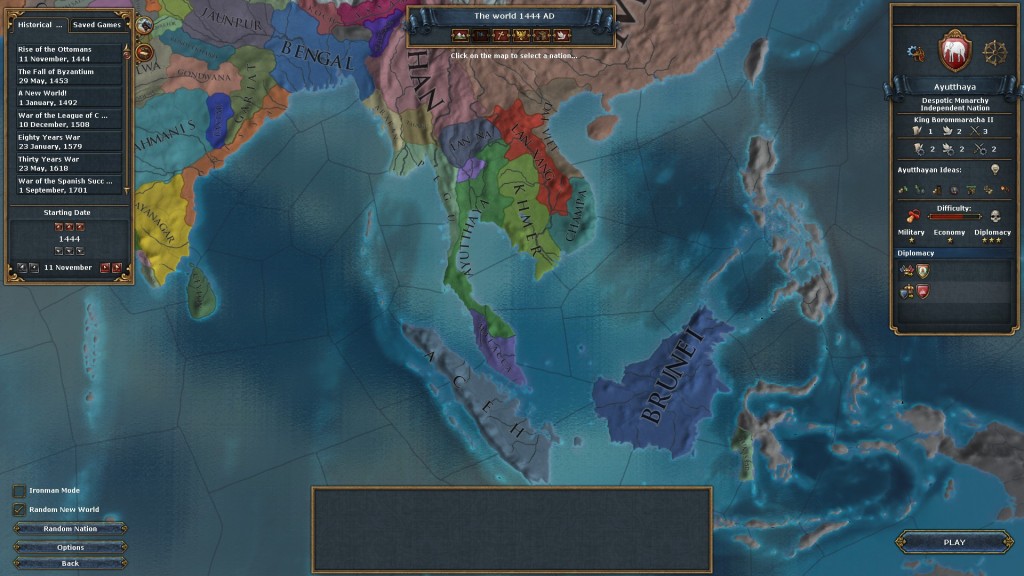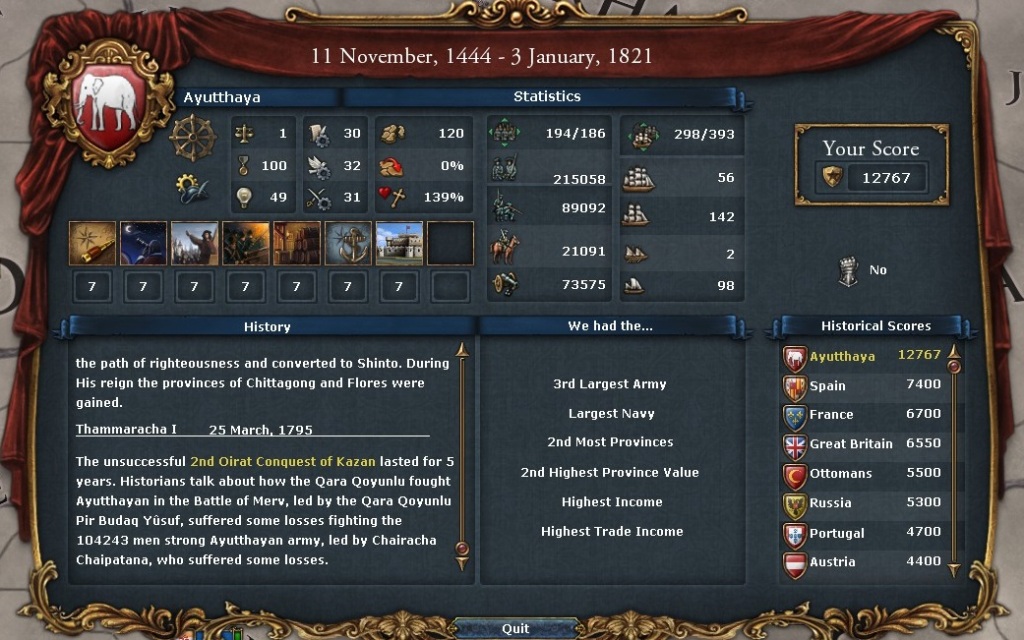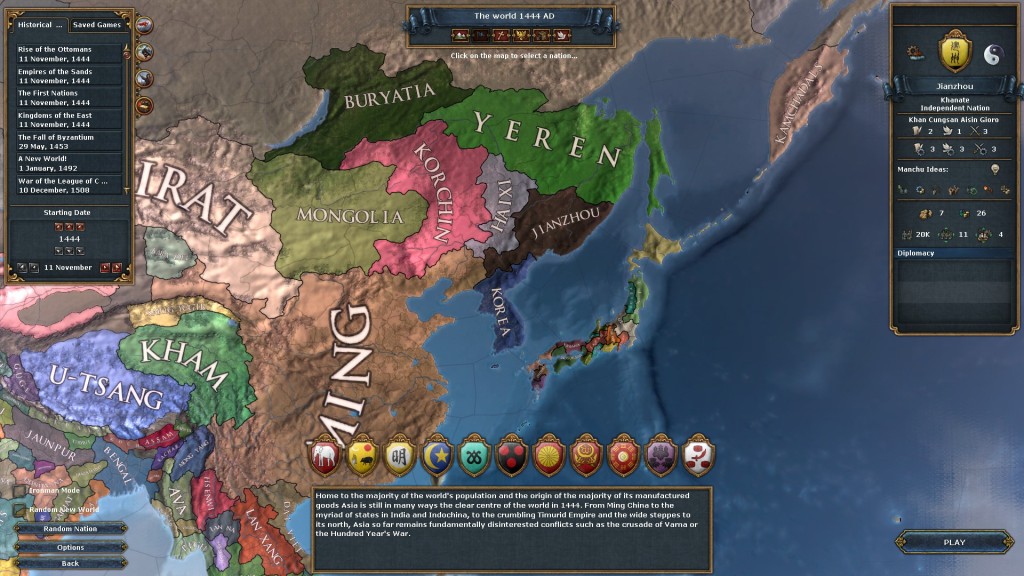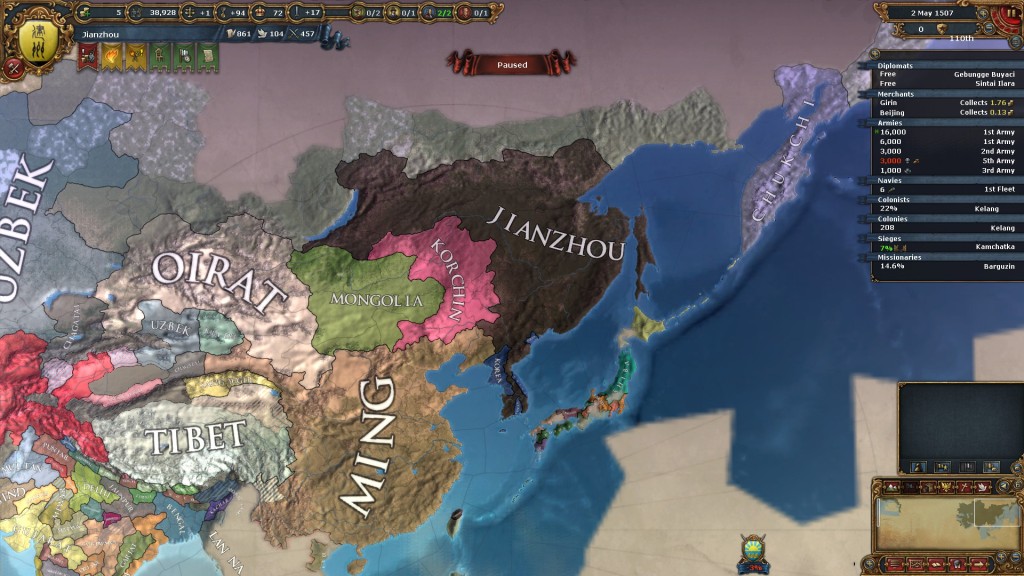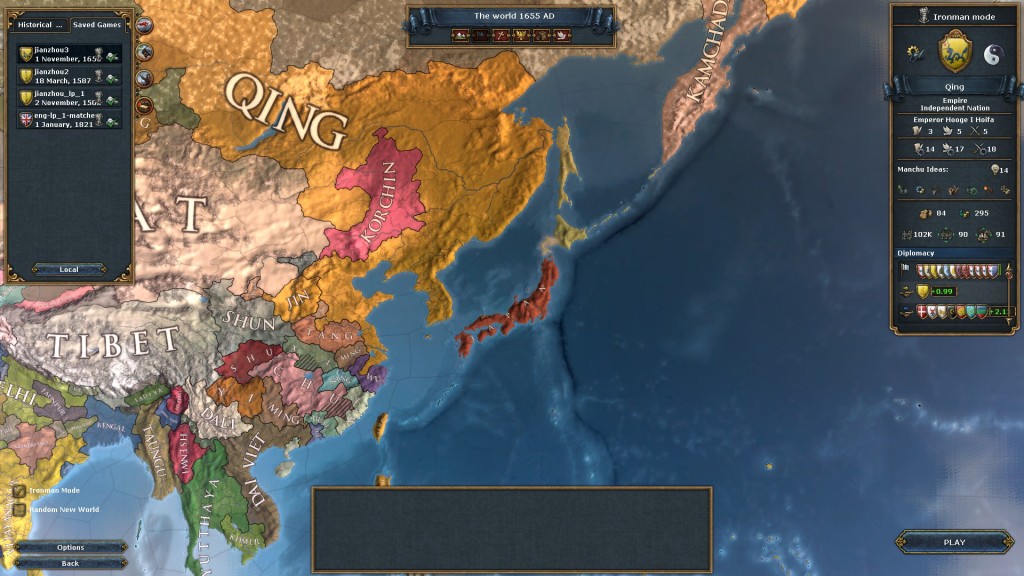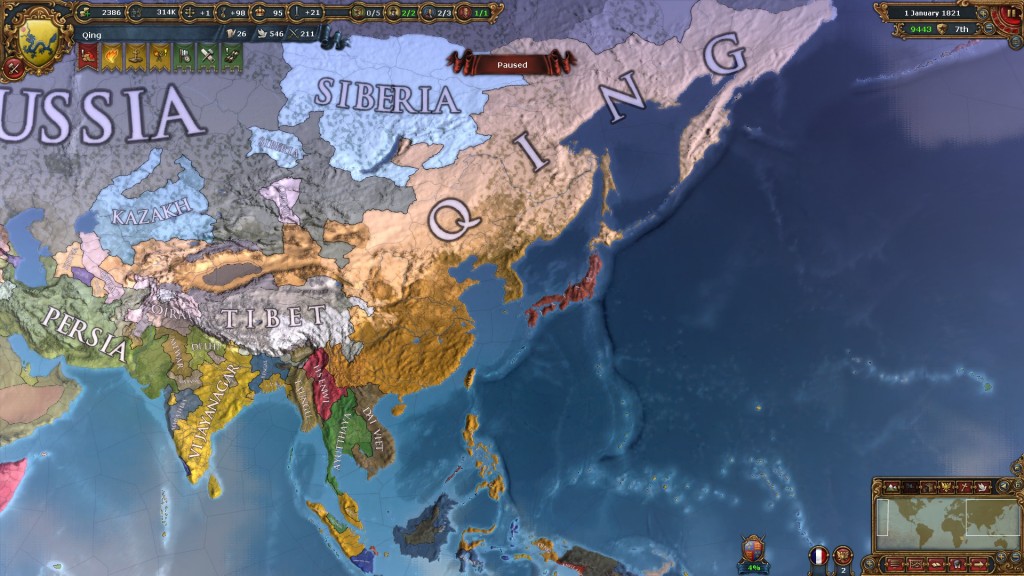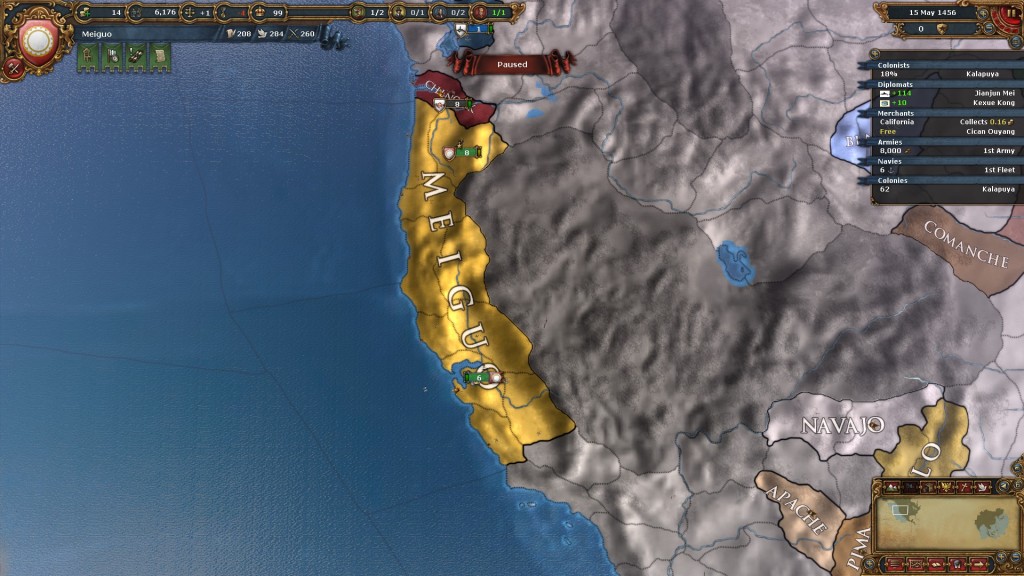Hot on the heels of Paradox’s announcement of Europa Universalis IV, studio boss Johan Anderson has presented the first gameplay video! Courtesy of Gamespot:
That video’s highlight, for me, is the new trade system (which starts at 3:54). Placing trade routes on the map (linking the old EU “centres of trade”) appears to been inspired by Empire: Total War‘s excellent but horribly underappreciated system. However, it appears Paradox is adding its own flair. This Destructoid interview explains:
“So what we’ve done is added in a system of static trade routes, so the trade flows along from the world into Europe, and your job is to dip money out of them as they go by. The way you do this… firstly you have your trusty merchant that you can send to various points along the routes to convince them to suck more wealth down to you rather than have the locals cream off the profits.
The second part of your trade empire is territory. If you take the Portuguese empire you’ll see strings of bases along their trade routes, so if you do the same thing you’ll be able to suck more trade home to Portugal and make yourself wealthier.
The third part is the fleet which will help you control trade in areas. We’re going to make small ships trade ships and big ships combat ships. So the small ships, you can send them off to, say, the Arabian Sea where the trade will split between going around to Africa and going up to Eastern Europe, and if you increase your power there you can steer the trade to where you want to.”
Trade ceases to be a merchant placement mini-game, and looks set to become far more connected to conquest, colonization, exploration, and diplomacy. No longer do you have to conquer entire countries to get a gold mine in a specific province, you can use your fleet and strategic bases to control the flow of trade on your own terms. Previously the system was very automated “and the moment you start talking about automation, the feature has a problem.”
As the above video highlights at 6:18, trade routes will also shift over the course of the game (away from the Mediterranean and towards the Atlantic, once the routes around the Cape of Good Hope and to the Americas open up).
The net effect, hopefully, will be to strengthen one of EU3‘s weaker aspects: the naval game. Not only were individual naval battles not very satisfying (they tended to boil down to “who brought the most ships?”), but EU3 only modelled one of the uses of seapower (being able to land troops on the enemy coast), while neglecting the need to protect overseas trade routes. Based on what we know so far, it sounds as though EU4‘s naval game will be much more interesting, which should benefit maritime powers such as Portugal, the Netherlands, and England->Great Britain. I look forward to seeing how this works in the final game — and to seeing what else Paradox has in store for us.
